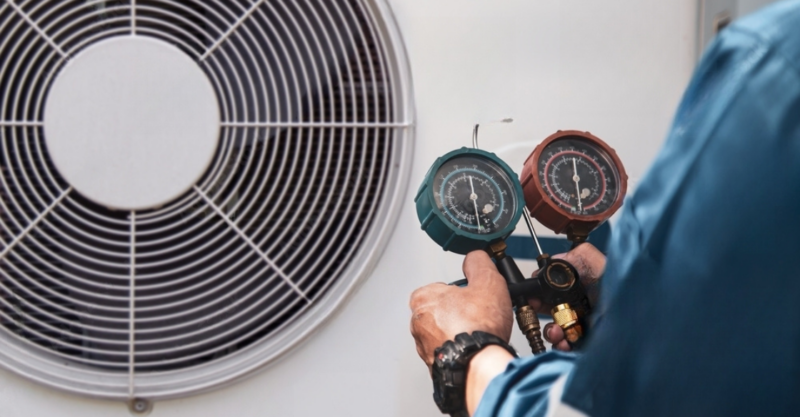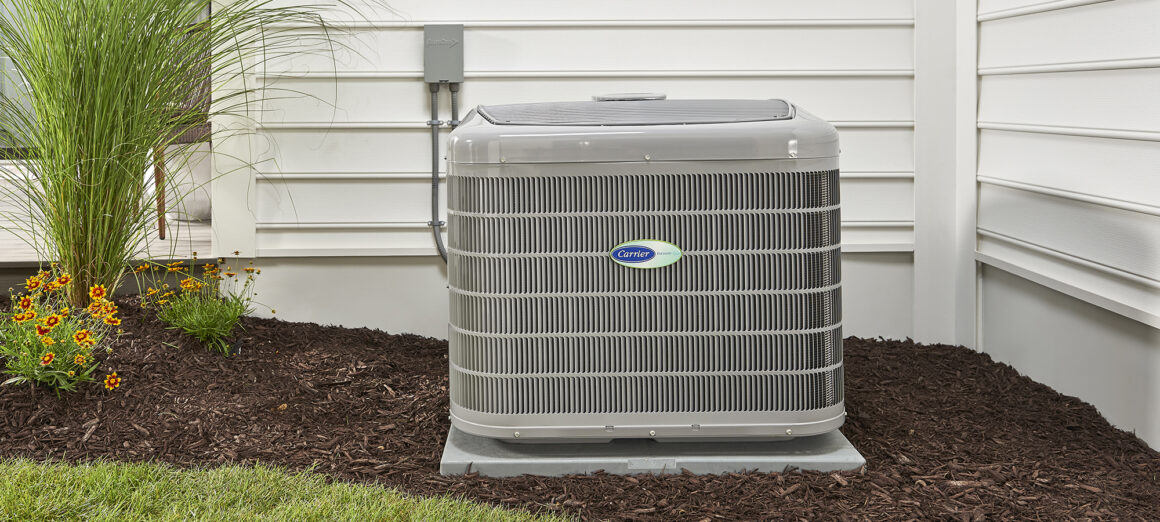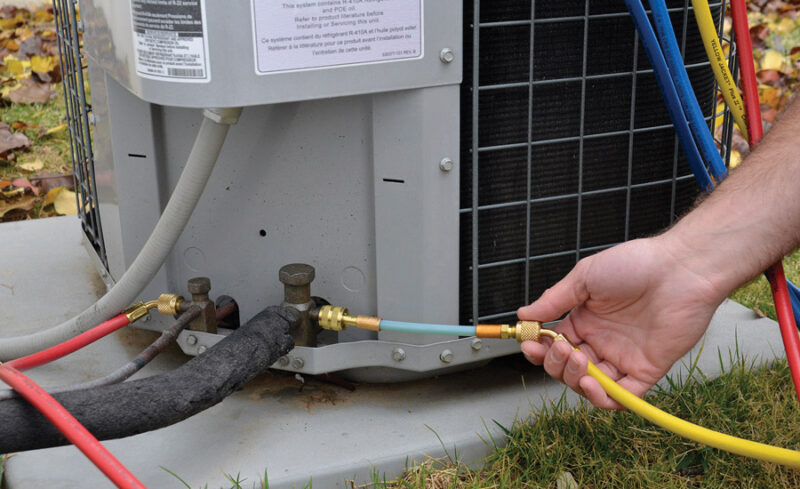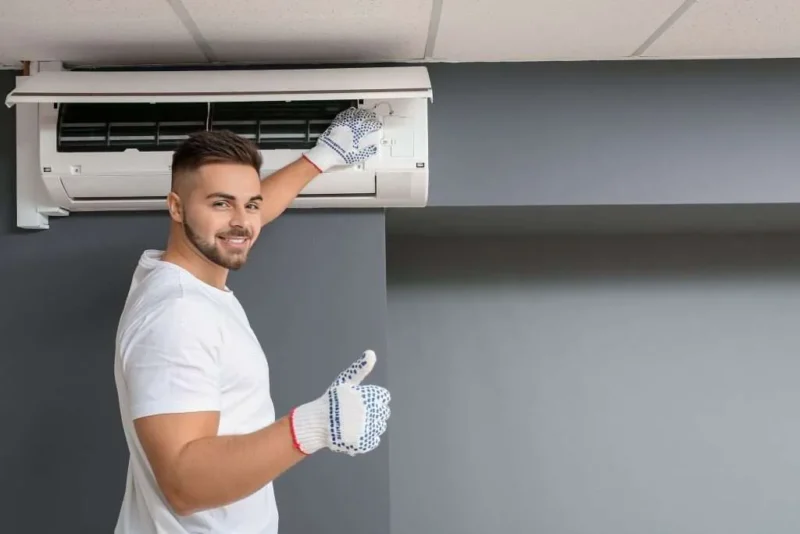As temperatures rise and summer approaches, your air conditioner becomes a crucial ally in maintaining a cool and comfortable indoor environment. However, like any mechanical system, air conditioners require care and attention to ensure they operate efficiently and have a long and productive lifespan. In this comprehensive guide, we will explore the reasons why extending the lifespan of your air conditioner is essential and provide in-depth details on practical tips to achieve just that.
Why Extend the Lifespan of Your Air Conditioner?

Your air conditioner is a significant investment in your home’s comfort, and extending its lifespan offers several benefits:
Cost Savings:
Replacing an air conditioner can be a costly endeavour. By maximising the lifespan of your current unit, you postpone the need for a new purchase, saving you money in the long run.
Energy Efficiency:
Well-maintained air conditioners operate more efficiently, using less energy to cool your home. This not only reduces your carbon footprint but also leads to lower energy bills.
Consistent Comfort:
A well-functioning air conditioner ensures a consistent and comfortable indoor environment, preventing unexpected breakdowns during the hottest days of summer.
Practical Tips to Extend the Lifespan of Your AC

1. Regular and Proper Maintenance
Regular maintenance is the cornerstone of ensuring your air conditioner operates smoothly. Follow these steps:
Cleaning or Changing Air Filters: Dirty filters restrict airflow and reduce efficiency. Clean or replace them every 1-3 months, depending on usage.
Coil Cleaning: Over time, the evaporator and condenser coils collect dirt. Clean these coils annually to maintain optimal heat exchange.
Clearing Debris: Keep the area around the outdoor unit clear of debris, leaves, and vegetation. This ensures unrestricted airflow.
Inspect and lubricate moving parts regularly: Your AC system has many moving parts that may need lubrication to reduce friction and wear. Refer to your unit’s manual or consult a professional technician for guidance on which parts to lubricate and how often you should do it.
2. Professional Annual Check-ups
While DIY maintenance is crucial, annual professional check-ups provide a more thorough inspection. A certified technician can do the following for you.
Check Refrigerant Levels: Ensure that the refrigerant level is adequate for optimal cooling performance.
Inspect Ductwork: Leaks or blockages in ductwork can reduce efficiency. Professionals can identify and fix these issues.
Tighten Electrical Connections: Loose connections can be dangerous and decrease the lifespan of your unit. Professionals can tighten and secure electrical components.
3. Optimal Thermostat Usage
Proper thermostat usage helps maintain a comfortable indoor climate without putting unnecessary strain on the air conditioner.
Programmable Thermostats: Use programmable thermostats to adjust temperatures based on your schedule. This reduces the workload on the system during periods of lower activity.
Avoid Drastic Temperature Changes: Gradual adjustments to the thermostat reduce the strain on your air conditioner. Avoid setting the temperature drastically higher or lower than the current indoor temperature.
4. Protecting the Outdoor Unit

The outdoor unit is exposed to the elements, and protecting it ensures optimal performance. Here’s what you can do:
Shade the Unit: If possible, provide shade for the outdoor unit without obstructing airflow. This can help reduce the workload on the system.
Use a Protective Cover in Winter: During the winter months, consider covering the outdoor unit to protect it from ice, snow, and debris.
5. Adequate Ventilation
Proper ventilation ensures efficient airflow, which is essential for your air conditioner’s performance. Below are some tips you can follow:
Keep Vents Unblocked: Ensure that air vents and registers are not blocked by furniture or other obstacles. Unobstructed airflow is vital for efficient cooling.
Consider Ventilation Upgrades: Improving ventilation in your home, such as adding attic fans or installing ceiling fans, can help distribute cool air more effectively.
6. Monitoring and Addressing Unusual Sounds or Behaviour
Any unusual sounds or behaviour from your air conditioner could indicate a potential issue. Act promptly when these happen:
Listen for Strange Noises: Unusual sounds like banging, hissing, or grinding may be signs of problems. If you hear anything unusual, schedule a professional inspection.
Addressing Leaks: If you notice water pooling around the indoor unit, it may indicate a leak in the condensate drain. Have it inspected and repaired promptly to prevent water damage and system inefficiency.
7. Consideration of Surrounding Climate
The climate in which you live can impact your air conditioner’s lifespan. Consider these tips:
Humidity Control: In humid climates, a dehumidifier can reduce the workload on your air conditioner, helping it operate more efficiently.
Regular Inspections in Harsh Climates: If you live in an area with extreme temperatures or harsh weather conditions, consider more frequent professional inspections to identify potential issues early.
8. Upgrade Insulation and Seal Leaks

Improving your home’s insulation and sealing any leaks helps your air conditioner maintain a consistent temperature with less effort.
Upgrade Insulation: Proper insulation prevents cooled air from escaping, reducing the workload on your air conditioner.
Seal Air Leaks: Identify and seal any gaps or leaks in windows, doors, and ductwork to prevent the loss of cooled air.
9. Gradual Cooling and Avoiding Overuse
Give your air conditioner breaks and avoid overuse so that you can extend its lifespan.
Gradual Cooling: Instead of setting the thermostat to a very low temperature, allow your air conditioner to cool gradually, reducing stress on the system.
Use Fans for Circulation: As mentioned above, using ceiling fans or standalone fans can help circulate air, making it feel cooler without overworking the air conditioner.
10. Timely Replacement of Aging Units
While proper maintenance can extend the life of your air conditioner, all systems have a finite lifespan. Consider replacement if your unit shows signs of aging.
Energy-Efficient Upgrades: If your unit is more than 10-15 years old, upgrading to a newer, more energy-efficient air conditioner model may be a wise investment.
Consult with Professionals: Seek advice from HVAC professionals to determine the optimal time for replacement based on your unit’s age, performance, and repair history.
The Final Thoughts
In conclusion, extending the lifespan of your air conditioner requires a combination of regular maintenance, professional inspections, and mindful usage. By incorporating these tips into your routine, you not only save on energy costs but also ensure a comfortable and cool indoor environment for years to come. Don’t wait until your AC system breaks down on a scorching summer day in NZ; take proactive steps to extend its lifespan and keep your home comfortable throughout the year. Remember, a well-cared-for air conditioner is a reliable and efficient companion during the hot summer months.



